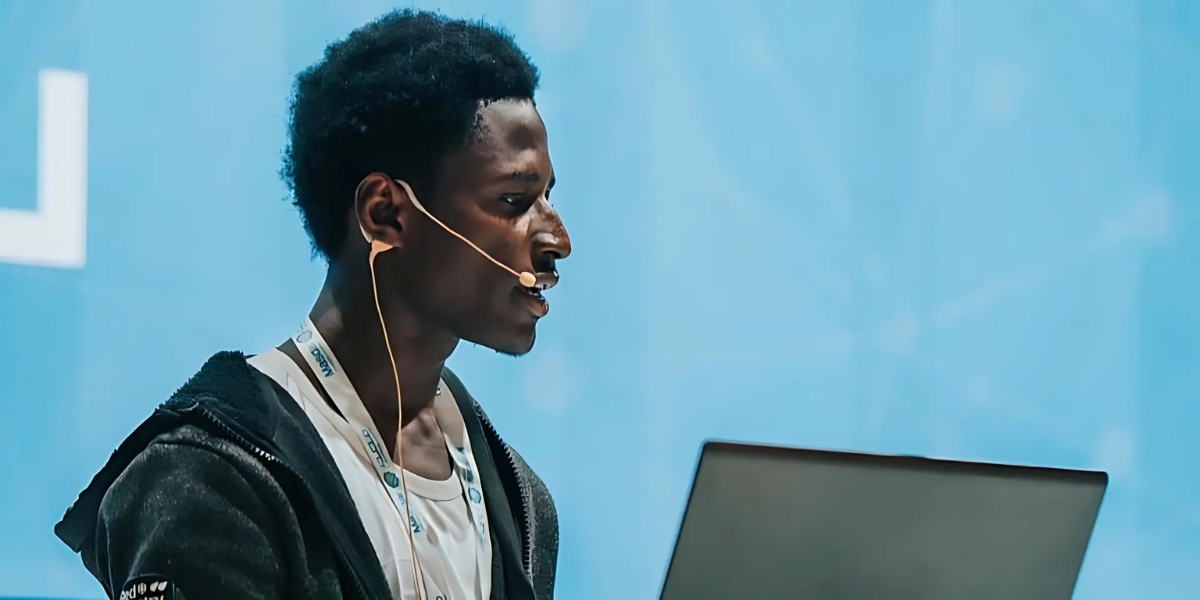By: Ethan Rogers
Mustapha Diyaol Haqq, an internationally recognized authority in artificial intelligence (AI) and agricultural innovation, is raising concerns: the agriculture industry may need to embrace AI to avoid falling behind. With years of experience developing AI-powered solutions tailored to smallholder farmers, Mustapha has emerged as a leading voice at the intersection of technology and food security.
Named to the prestigious “50 Next Class of 2022,” which honors global innovators in food and agriculture, the Ghanaian coder and AI specialist is leveraging cutting-edge technology to help transform how farming is done across the African continent and beyond. At the forefront of this evolution is his climate-smart innovation: the Fama device, an AI-powered tool designed to assist farmers in diagnosing crop diseases using nothing more than a scan.
“Integrating AI into agriculture is becoming increasingly important,” says Mustapha. “The industry faces significant threats from climate change, pests, and soil degradation. Without leveraging AI-driven insights and real-time decision-making, farmers could continue facing preventable losses.”
The Fama device, built specifically for rural, low-resource environments, helps make advanced diagnostics more accessible. Its intuitive interface allows farmers with little to no tech background to detect diseases early, potentially reducing crop loss and supporting smarter choices, which could lead to more resilient and productive farms.
As an AI thought leader, Mustapha suggests that a failure to scale such technologies might widen the gap between industrial and small-scale farmers, potentially worsening global food insecurity. “The agriculture industry’s hesitation toward innovation could have long-term consequences,” he explains. “The tools exist. The question is whether we’re willing to use them at scale.”
His impact is already being felt. Through his foundation, Okuafo, over 80,000 farmers in West Africa have gained access to mobile-based AI tools that identify pests and diseases. Reported results include a 75% reduction in pesticide usage and crop yield increases exceeding 50%, suggesting the power of AI as more than just a concept but a potentially valuable tool for farmers.
Mustapha believes the global food system may be approaching a tipping point. “AI is not just about automation. It’s about foresight, adaptability, and providing farmers with data they’ve rarely had before,” he says. “Adopting these tools could be key to building a food system capable of withstanding the pressures of climate change and feeding a growing population.”
Beyond the field, Mustapha uses his platform as a World Food Forum champion to educate young innovators on the potential of agri-tech solutions. He advocates for broader adoption of AI, urging policymakers, tech leaders, and agriculture stakeholders to consider innovation as a strategic priority.
“Every year we delay broader AI adoption in agriculture, we may miss opportunities,” he notes. “We’re not just talking about yields, we’re talking about livelihoods, ecosystems, and the future of food itself.”
As AI continues to reshape global industries, Mustapha Diyaol Haqq remains one of agriculture’s most influential voices and forward-thinking innovators. His groundbreaking work offers a glimpse into what’s possible while underscoring the importance of timely action and sustainable solutions.
Published by Liz SD.
















